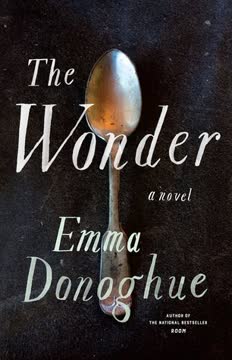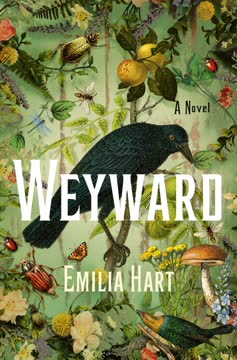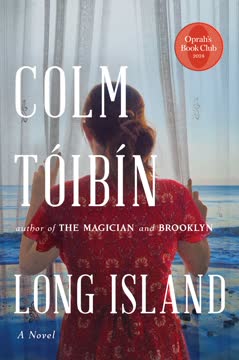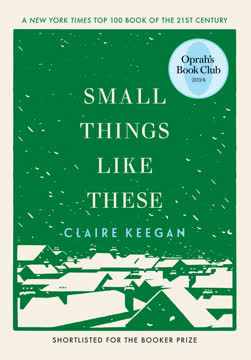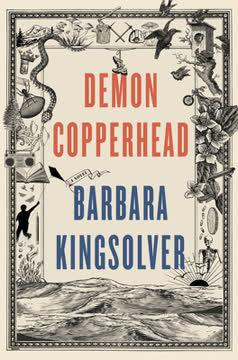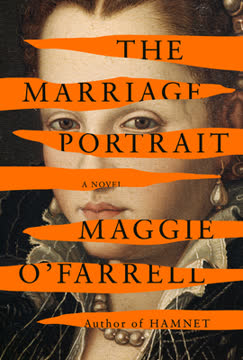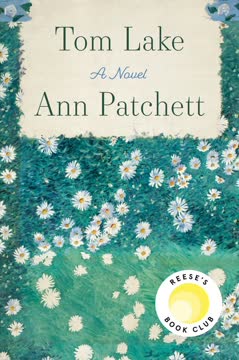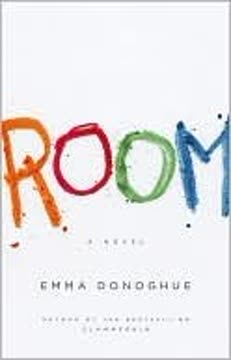Plot Summary
Arrival in the Boglands
Elizabeth "Lib" Wright, an English nurse trained by Florence Nightingale, journeys to rural Ireland in 1859, summoned to observe a mysterious case. Hired by a local committee, she is to watch over Anna O'Donnell, an eleven-year-old girl who claims to have survived for months without food. Lib's arrival is met with suspicion and curiosity; the landscape is bleak, the people wary, and the O'Donnell family's poverty is palpable. Lib's skepticism is immediate—she suspects a hoax, a trick of faith or family, and braces herself for a fortnight of close observation. The stage is set for a collision between science and superstition, English rationality and Irish piety, as Lib steps into a world where hunger, faith, and secrets intertwine.
The Living Marvel
Anna O'Donnell is the center of a local sensation, drawing pilgrims and gawkers alike to her family's humble cottage. She is presented as a living marvel, a child who has not eaten since her eleventh birthday, yet appears in good health. Visitors bring gifts, prayers, and money, fueling both the family's reputation and the village's notoriety. Lib, alongside the devout Sister Michael, is tasked with observing Anna day and night, searching for any sign of deception. The O'Donnells, especially Anna's mother Rosaleen, bask in the attention, while Anna herself is gentle, pious, and enigmatic. The line between faith and fraud blurs as the community's hopes and anxieties are projected onto the frail girl at the heart of the storm.
The Watchers' Vigil
Lib and Sister Michael establish a strict schedule, ensuring Anna is never left alone. Every movement, every visitor, every possible hiding place for food is scrutinized. Lib's clinical detachment is tested by the monotony and the emotional strain of constant surveillance. She records Anna's physical state meticulously, noting her thinness, swelling, and odd symptoms. The O'Donnells' routines—prayers, meals, chores—continue around the nurses, but tension simmers beneath the surface. The village is divided: some believe in Anna's sanctity, others suspect trickery. Lib's skepticism is challenged by Anna's serenity and the community's fervor, but she remains determined to uncover the truth, even as the days drag on and Anna's health subtly shifts.
Anna's Faithful Fast
Anna's refusal to eat is unwavering, rooted in deep religious conviction. She prays constantly, recites hymns, and clings to her holy cards and devotional books. The local priest, Mr. Thaddeus, and the O'Donnells reinforce the idea that Anna's fast is a miracle, a sign of divine favor. Lib probes for a rational explanation, questioning Anna about her motives and physical sensations. Anna's answers are elusive, her faith unshakable. The nurses' presence disrupts the family's routines, but Anna adapts, enduring the scrutiny with patience. As the days pass, Anna's body begins to show signs of strain, but her spirit remains steadfast, and the community's belief in her grows ever more fervent.
Rituals and Riddles
The O'Donnell household is steeped in ritual: prayers at dawn, the Angelus at noon, the Rosary at night. Anna's world is filled with saints, relics, and superstitions—milk for the fairies, rags on holy trees, and whispered charms. Lib, an outsider, struggles to interpret these customs, sometimes dismissing them, sometimes drawn in by their emotional power. She and Anna exchange riddles, forging a tentative bond. The village's poverty and history of famine haunt every meal, every conversation. Anna's fast becomes a symbol of endurance and sacrifice, but also of the dangers of blind faith. Lib's scientific training clashes with the mystical logic of the community, deepening her sense of isolation.
The Weight of Grief
Anna's fast is revealed to be entwined with grief for her brother Pat, who died suddenly the previous year. The O'Donnells' sorrow is palpable, their faith a shield against despair. Anna believes her suffering can redeem Pat's soul, a conviction reinforced by sermons and stories of saints. Lib uncovers the family's history, the scars left by famine and emigration, and the ways in which loss has shaped their beliefs. The line between penance and self-destruction blurs. Lib's own losses—her child, her marriage—resonate with Anna's, drawing her deeper into the emotional currents of the household. Grief becomes both a prison and a source of meaning for Anna and those around her.
The Village Divided
The case of Anna O'Donnell polarizes the village and attracts national attention. Journalists, doctors, and pilgrims descend, each with their own agenda. Some see Anna as a saint, others as a fraud or victim. The local committee overseeing the watch is torn between pride, skepticism, and fear of scandal. Lib's reports to Dr. McBrearty are met with evasions and rationalizations. The priest and the nun are caught between pastoral care and institutional caution. The O'Donnells' reputation is at stake, as is the honor of the village and the Church. The watch becomes a battleground for competing narratives—science versus faith, English versus Irish, individual suffering versus communal identity.
The Limits of Science
Lib's training and logic are pushed to their limits as Anna's condition deteriorates without clear explanation. Medical theories—hysteria, secret feeding, miraculous metabolism—are debated and discarded. Lib's meticulous observations yield no evidence of deception, yet Anna's survival defies reason. The possibility of unconscious night-feeding is considered, but the nurses' vigilance seems airtight. Lib consults with Dr. McBrearty, whose own beliefs waver between scientific curiosity and mystical hope. The boundaries of knowledge and belief blur, and Lib is forced to confront the limitations of her own understanding. The case becomes a test not just of Anna's endurance, but of Lib's faith in reason itself.
Secrets in the Shadows
As Anna weakens, Lib senses deeper secrets at play. The O'Donnells' behavior grows more erratic; Rosaleen's devotion masks something darker. Lib's bond with Anna deepens, and the girl begins to confide in her. Through whispered conversations and careful observation, Lib uncovers the truth: Anna's fast is not just a religious act, but a response to trauma and guilt. The revelation of past abuse and the burden of confession weigh heavily on Anna. Lib is torn between her duty as a nurse, her compassion for the child, and the constraints of the watch. The shadows in the O'Donnell home lengthen, and the stakes become life and death.
The Breaking Point
Anna's physical decline accelerates—her pulse races, her skin yellows, her body swells and weakens. The community's prayers intensify, but Lib sees the end approaching. Desperate, she pleads with the O'Donnells, the priest, and the committee to intervene, but is met with denial, helplessness, or fatalism. The watch becomes a deathwatch. Lib's own emotional boundaries collapse; she is haunted by memories of her lost child and failed marriage. The limits of compassion, authority, and faith are tested. Anna's suffering becomes unbearable, and Lib realizes that only a radical act can save her. The moment of crisis arrives, demanding courage and sacrifice.
The Truth Unveiled
In a moment of clarity, Anna reveals the truth: her mother has been secretly feeding her chewed food under the guise of a "holy kiss," convincing Anna it is manna from heaven. When the watch began, this secret feeding stopped, and Anna's health plummeted. The fast is both a miracle and a deception, born of love, grief, and misunderstanding. Lib is horrified by the complicity and silence that have allowed Anna's suffering to continue. She confronts Rosaleen, who refuses to acknowledge the harm done. The revelation is both a key and a burden—Lib now knows how to save Anna, but must act quickly and decisively.
A Desperate Gamble
With Anna near death and the community unwilling to intervene, Lib devises a desperate plan. She convinces Anna that she can be "reborn" as a new girl, free from guilt and obligation, if she eats and leaves her old life behind. Anna, weakened and longing for release, accepts. Lib secretly feeds her milk and bread, breaking the fast. With the help of journalist William Byrne, Lib spirits Anna away under cover of night, staging a fire to fake the girl's death. The act is both rescue and abduction, a violation of law and custom, but the only way to give Anna a chance at life. Lib's own future is now in jeopardy, but her resolve is unshakable.
Fire and Flight
Lib sets the O'Donnell cottage ablaze, destroying evidence and creating the illusion of Anna's death. She suffers burns in the process, barely escaping with her life. Anna, now "Nan," is taken by Byrne to safety, while Lib faces interrogation and suspicion from the committee and the authorities. The village mourns Anna as a martyr, unaware of the truth. Lib's actions are both condemned and misunderstood; she is seen as careless, even criminal, but her silence protects Anna's new life. The fire becomes a symbol of both destruction and purification, severing the ties of the past and opening the way for transformation.
Reckoning and Release
Lib endures questioning and public scrutiny, her reputation in tatters. The committee dissolves, the O'Donnells grieve, and the village moves on, clinging to the myth of the fasting girl. Lib's own sense of guilt and loss is profound, but she finds solace in the knowledge that Anna is alive and free. The cost of rescue is high—Lib must abandon her old identity, her profession, and her homeland. The story of Anna O'Donnell becomes legend, its true meaning lost to all but a few. Lib's journey is one of reckoning, forgiveness, and the painful necessity of letting go.
A New Beginning
In the epilogue, Lib, now Eliza Raitt, begins a new life in Australia with William Byrne (now Wilkie Burns) and Anna, now Nan Burns. The trio forms a makeshift family, united by love, loss, and the will to survive. The past is left behind, its secrets buried, as they look to the future with hope. Nan, still fragile but healing, is given the chance to grow up free from the burdens of faith and guilt that nearly destroyed her. Lib's journey from skeptic to savior is complete, her sacrifice redeemed by the possibility of happiness. The story ends with the promise of new stars, new names, and new beginnings.
Characters
Elizabeth "Lib" Wright
Lib is an English nurse, widowed and childless, whose identity is shaped by loss and professional rigor. Trained by Florence Nightingale, she is rational, methodical, and initially dismissive of Irish superstition. Her assignment to watch Anna O'Donnell is both a challenge and a burden, forcing her to confront the limits of science and the depths of human suffering. Lib's skepticism is gradually eroded by empathy; her bond with Anna becomes maternal, redemptive, and transformative. Haunted by her own failures, Lib's journey is one of self-forgiveness and moral courage. She risks everything—her reputation, her freedom, her sense of self—to save Anna, ultimately finding purpose and hope in a new life.
Anna O'Donnell / Nan Burns
Anna is an eleven-year-old Irish girl whose refusal to eat is rooted in religious fervor, grief, and unspoken trauma. Idolized as a living miracle, she is gentle, intelligent, and deeply pious, but also burdened by guilt and loss. Anna's fast is both a plea for redemption and a form of self-punishment, shaped by the death of her brother and the weight of confession. Her relationship with Lib is transformative, offering the possibility of trust and healing. Anna's journey from martyr to survivor is fraught with suffering, but her rebirth as "Nan" in a new land offers hope for recovery and freedom from the past.
Rosaleen O'Donnell
Rosaleen is Anna's mother, a woman hardened by poverty, loss, and religious devotion. She is both protector and perpetrator, complicit in the deception that sustains Anna's fast. Rosaleen's love is fierce but misguided, her need for meaning and reputation blinding her to her daughter's suffering. She is a complex figure—capable of tenderness, denial, and cruelty—whose actions are shaped by the traumas of famine and bereavement. Rosaleen's inability to confront the truth or break the cycle of sacrifice is both tragic and damning, leaving her isolated and bereft.
Malachy O'Donnell
Malachy is Anna's father, a quiet, broken man whose authority has been eroded by loss and hardship. He is affectionate but ineffectual, unable to challenge his wife or intervene in Anna's suffering. Malachy's passivity is rooted in a sense of powerlessness, shaped by the failures of the land, the death of his son, and the weight of tradition. His love for Anna is genuine, but his inability to act is ultimately a form of complicity. Malachy embodies the resignation and fatalism that pervade the community.
Sister Michael
Sister Michael is the local nun assigned to watch Anna alongside Lib. She is pious, reserved, and obedient, her worldview shaped by religious duty and institutional loyalty. Sister Michael's faith is sincere, but she is not blind to suffering; she is moved by Anna's decline and troubled by the limits of her own authority. Her relationship with Lib is tense but ultimately supportive, and she plays a crucial role in enabling Anna's escape. Sister Michael's struggle is between obedience and compassion, faith and doubt.
Dr. McBrearty
Dr. McBrearty is the O'Donnells' family doctor and a key member of the committee overseeing the watch. He is elderly, curious, and easily swayed by the allure of the miraculous. McBrearty's scientific training is undermined by his fascination with the unknown; he vacillates between skepticism and credulity. His inability to act decisively or challenge the community's beliefs contributes to Anna's suffering. McBrearty represents the limitations of 19th-century medicine and the dangers of intellectual vanity.
William Byrne
Byrne is an Irish journalist covering Anna's case for the national press. He is intelligent, witty, and empathetic, serving as both observer and participant in the unfolding drama. Byrne's skepticism is tempered by compassion; he forms a bond with Lib and becomes her ally in the effort to save Anna. His outsider status allows him to see through the village's illusions, and his willingness to risk his career and safety is crucial to Anna's escape. Byrne's relationship with Lib is one of mutual respect, affection, and shared purpose.
Mr. Thaddeus
Mr. Thaddeus is the local Catholic priest, a figure of authority and comfort in the community. He is both supportive and evasive, caught between pastoral care and institutional caution. Thaddeus's reluctance to intervene or challenge the O'Donnells' beliefs is rooted in fear of scandal and a desire to protect the Church. He is ultimately complicit in Anna's suffering, offering absolution but not rescue. Thaddeus embodies the moral ambiguities of religious authority.
Kitty
Kitty is the O'Donnells' maid and Anna's cousin, a young woman shaped by poverty and dependence. She is affectionate and protective towards Anna, but lacks the agency to challenge the family's decisions. Kitty's loyalty is both a strength and a weakness; she is caught between compassion and obedience, unable to break the cycle of silence and complicity. Her grief and helplessness mirror the broader community's response to Anna's ordeal.
The Committee
The local committee—comprising Dr. McBrearty, Mr. Thaddeus, John Flynn, Mr. Ryan, O'Flaherty, and Sir Otway Blackett—represents the competing interests and anxieties of the village. They are motivated by pride, skepticism, fear of scandal, and a desire for validation. Their inability to act decisively or confront the truth is emblematic of the broader failures of authority and community. The committee's dissolution marks the end of the old order and the possibility of change.
Plot Devices
Dual Narratives: Science vs. Faith
Lib's scientific training and skepticism are set against the O'Donnells' faith and the community's superstitions. The narrative structure alternates between clinical observation and emotional immersion, highlighting the limitations and strengths of both approaches. This duality is mirrored in the alternating perspectives of Lib and Anna, and in the shifting allegiances of the supporting characters. The device allows the reader to experience the story's mysteries and revelations from multiple angles, deepening the emotional and intellectual impact.
The Watch: Surveillance as Plot Engine
The nurses' constant observation of Anna creates a sense of claustrophobia and urgency, driving the plot forward. The watch is a test of endurance, a ritual of scrutiny, and a battleground for competing truths. It exposes the limits of authority, the dangers of passivity, and the consequences of inaction. The structure of shifts, reports, and committee meetings provides a framework for the unfolding drama, while also highlighting the failures of institutional oversight.
Foreshadowing and Symbolism
The story is rich in foreshadowing: the references to famine, the rituals of prayer and penance, the imagery of fire and water, the riddles exchanged between Lib and Anna. Objects such as Anna's holy cards, the treasure chest, and the burning lamp serve as symbols of faith, secrecy, and transformation. The motif of rebirth—through fire, through new names, through migration—prepares the reader for the story's resolution. The use of riddles and folklore underscores the ambiguity of truth and the power of narrative.
Confession and Revelation
The plot is driven by the slow revelation of hidden truths: Anna's trauma, the secret feeding, the complicity of the family and community. Confession—both religious and personal—is a recurring device, used to explore guilt, forgiveness, and the possibility of redemption. The climactic confessions between Anna and Lib, and between Lib and Byrne, serve as turning points, enabling action and transformation.
Transformation and Escape
Lib's decision to fake Anna's death and spirit her away is both a literal escape and a symbolic rebirth. The use of fire as both destruction and purification, the adoption of new names and identities, and the journey to a distant land all serve as devices to explore the possibility of change. The story's resolution is both realistic and hopeful, acknowledging the costs of survival while affirming the power of love and agency.
Analysis
Emma Donoghue's The Wonder is a profound meditation on the collision of faith, science, and trauma in a world shaped by loss and longing. Set in post-famine Ireland, the novel interrogates the boundaries between miracle and fraud, compassion and complicity, tradition and transformation. Through the lens of Lib Wright—a skeptical, grieving nurse—the story explores the dangers of blind faith, the failures of authority, and the redemptive power of empathy. Anna O'Donnell's ordeal is both a personal tragedy and a reflection of collective wounds: the scars of famine, the weight of religious guilt, and the silences that perpetuate suffering. Donoghue's narrative structure—blending meticulous observation with emotional intimacy—invites readers to question the nature of truth and the limits of knowledge. The novel's resolution, in which rescue requires both deception and sacrifice, challenges easy moral judgments and affirms the necessity of agency and hope. Ultimately, The Wonder is a story about the courage to see, to act, and to begin again, even in the face of overwhelming darkness.
Last updated:
Review Summary
The Wonder receives mostly positive reviews, praised for its atmospheric writing, compelling mystery, and exploration of faith versus science. Set in 1850s Ireland, it follows a nurse investigating a girl who claims to survive without food. Many readers found it engrossing and thought-provoking, though some felt the pacing was slow. Critics appreciated Donoghue's attention to historical detail and character development. While not universally loved, most reviewers found it a unique and captivating story that raises interesting questions about religion, superstition, and human nature.
Similar Books
Download PDF
Download EPUB
.epub digital book format is ideal for reading ebooks on phones, tablets, and e-readers.
